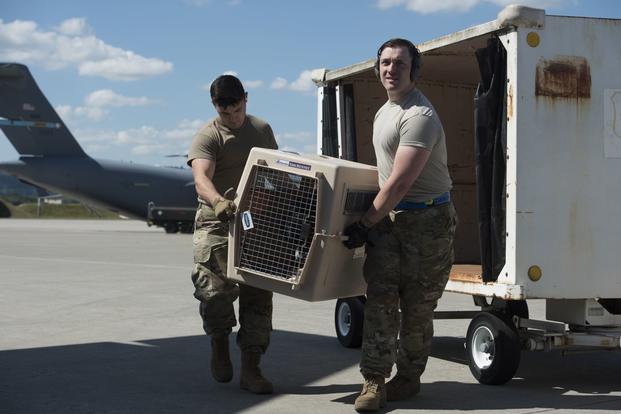The military’s pet transportation allowance went into effect on January 1, 2024. Initially approved in 2022 as part of the 2023 National Defense Authorization Act, the Defense Department postponed its implementation until this year due to budget limitations. However, the program has now launched!
So, what does this mean for pet owners?
This allows for reimbursement of certain costs associated with transporting one dog or cat when you receive permanent change of station (PCS) orders.
This development is particularly significant for families with pets, especially during overseas relocations. Our family’s numerous moves—with pets—ranged from Hawaii to Australia, back to the U.S., then to Italy and England, totaling six relocations that qualify as OCONUS (outside the continental United States). Throughout these transitions, we incurred over $10,000 in pet relocation expenses, which can create a substantial financial strain on military families.
Which Orders Are Eligible for the Pet Transportation Allowance?
Only PCS orders qualify for the pet transportation allowance. To be eligible for reimbursement, these orders must be effective on or after January 1, 2024—note that this is not the date the orders were issued! Generally, the effective date refers to when the service member is required to report to their new duty station, reduced by authorized travel days and adding one day. For clarification, refer to the example sheet available.
What Is the Reimbursement Amount?
The allowance covers actual authorized expenses up to a specified limit. For moves within the continental United States (CONUS), the maximum reimbursement is $550, whereas for OCONUS moves, it is capped at $2,000. This allowance is valid for one dog or cat per service member. If you own multiple pets, you can select which pet’s costs to claim, but you cannot combine expenses for different pets, even if the total is under the reimbursement cap. Dual military families are permitted reimbursement for one pet per PCS order.
What Expenses Are Covered?
Certain expenses are reimbursable for all moves, whether CONUS or OCONUS, including:
- Mandatory microchipping
- Boarding fees
- Hotel service charges
- Licensing fees at the new permanent duty station
- Pet shipping fees if the pet travels separately from the service member or if the member flies instead of driving
For OCONUS relocations, additional reimbursable expenses may apply. All costs need to be “reasonable and substantiated,” meaning they should align with standard pricing for those services and be documented with receipts. Your military branch may have extra requirements for reimbursement documentation.
Government Transportation Availability for OCONUS Moves
There’s a critical stipulation for OCONUS moves. According to the Joint Travel Regulations, “For transoceanic travel, use of Government or Government-procured transportation must be utilized if available, or reimbursement for transportation costs is not authorized.” The phrase “if available” is crucial here.
Consequently, you may be eligible for reimbursement of non-government travel if you obtain a non-availability statement for any government-provided travel options, such as the Patriot Express. Non-availability statements can be requested through your transportation office. Notably, the total reimbursement amount remains unchanged, even if government transportation is not used, which may result in some families still having to pay significant out-of-pocket costs to transport pets OCONUS.
Stay Updated on Military Pay Changes
Military pay benefits frequently evolve. Ensure you’re informed about your entitlements by subscribing to Military.com for the latest updates on military pay and benefits, delivered straight to your inbox.


